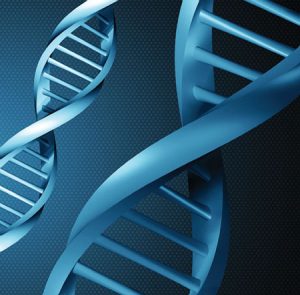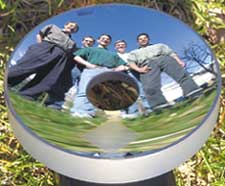BYU’S College of Life Sciences is home to a new DNA genome sequencer, thanks to a $630,000 grant from the National Science Foundation and additional funding from the university. The sequencer allows researchers to decode DNA, identifying the order of DNA nucleotides, or base pairs, in an organism’s genome. The human genome is made up of over 3 billion base pairs.
While the university’s old sequencer produced about 67,000 base pairs in a single run, the new machine produces about 500 million pairs and is about a thousand times cheaper per sequence, increasing BYU’s research possibilities. Here is what professors are planning:
• Joshua A. Udall (BS ’95), assistant professor of biology and author of the grant proposal for the new sequencer, will sequence expressed genes of the cotton genome to help improve cotton’s quality and drought resistance.
• P. Jeff Maughan (BS ’90), associate professor of plant and wildlife sciences, is studying the highly nutritional, under-researched crops quinoa and cañahua. Genetically improving these crops could help alleviate malnutrition in many parts of the world.
• Keith A. Crandall, chair of the Department of Biology, is searching the human genome for DNA infections from viruses and bacteria that lead to possible cancer threats.
• Quinn O. Snell, associate professor of computer science, and doctorate student Scott Lloyd (’10) are researching how much genomic data is necessary to complete a whole genome phylogenetic (family tree) analysis for a set of species.
• W. Evan Johnson (MS ’03), assistant professor of statistics, and Mark J. Clement (BS ’85), associate professor of computer science, are working on the Genomic Next-Generation Universal MAPper, a program that maps larger reads from the sequencer and enables researchers to reconstruct genomes without losing as much data.










